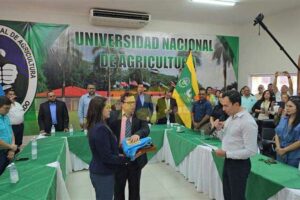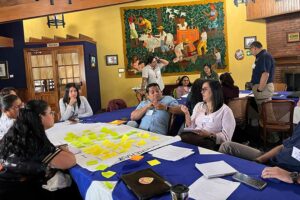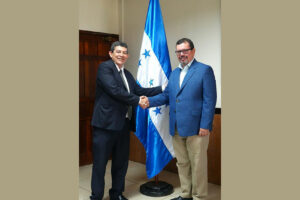CATIE shares experience in ecological mangrove restoration at regional forum on climate technology and finance
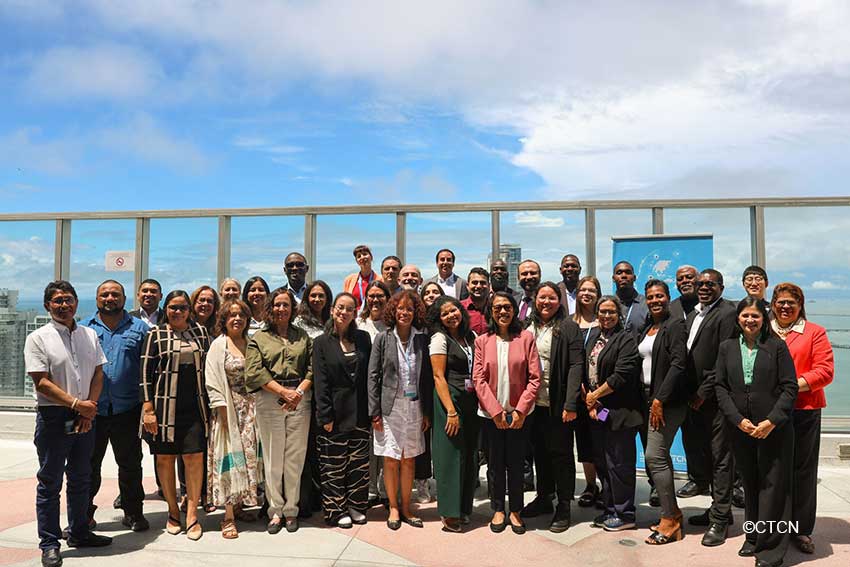
- The “Cuerval Sostenible” initiative stands out as a regional example of technical innovation and community empowerment for mangrove conservation on Colombia’s Pacific coast.
During the Regional Forum of National Designated Entities (NDEs) and the Capacity Building Program on Climate Technology and Finance for Latin America and the Caribbean, CATIE (Tropical Agricultural Research and Higher Education Center) presented the progress of its “Cuerval Sostenible” project, an ongoing technical assistance initiative on Colombia’s Pacific coast focused on the conservation and ecological restoration of mangroves.
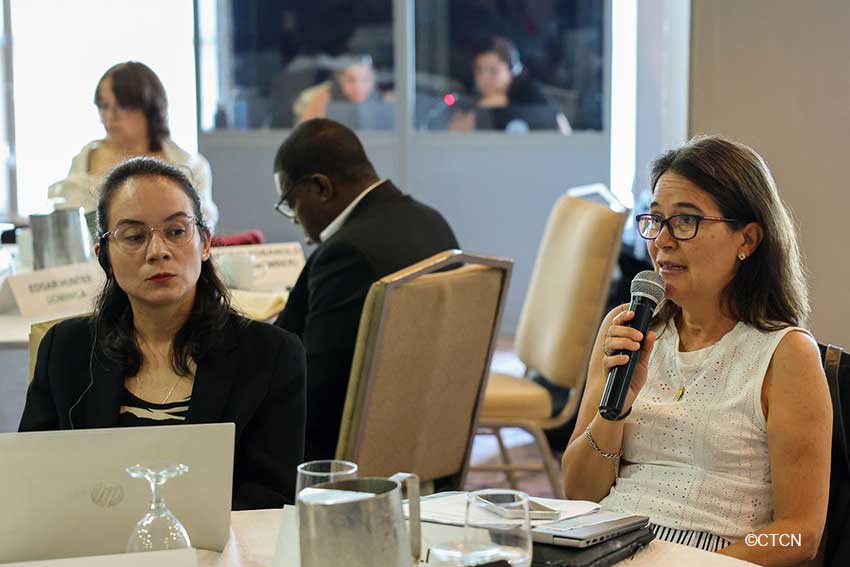
The forum, organized by the Climate Technology Centre and Network (CTCN) —the technical arm of the Technology Mechanism of the United Nations Framework Convention on Climate Change (UNFCCC)— gathered representatives from over 20 countries across the region in the context of the 2025 Latin America and Caribbean Climate Week.
The “Cuerval Sostenible” technical assistance is being implemented in the territory of the El Cuerval Community Council, located in the municipality of Timbiquí, department of Cauca. The project aims to strengthen local capacities for community-based participatory monitoring and to promote restoration strategies that integrate ancestral knowledge and the traditional lifestyles of Afro-descendant communities.
The presentation was delivered by Danilo Torres and Pablo Imbach, researchers from CATIE’s Climate Action Unit, together with Allison del Río, representative of the Ministry of Environment and Sustainable Development of Colombia, the national focal point for CTCN in the country. The speakers outlined the project’s objectives, products, and data collection methods, as well as key results achieved to date.
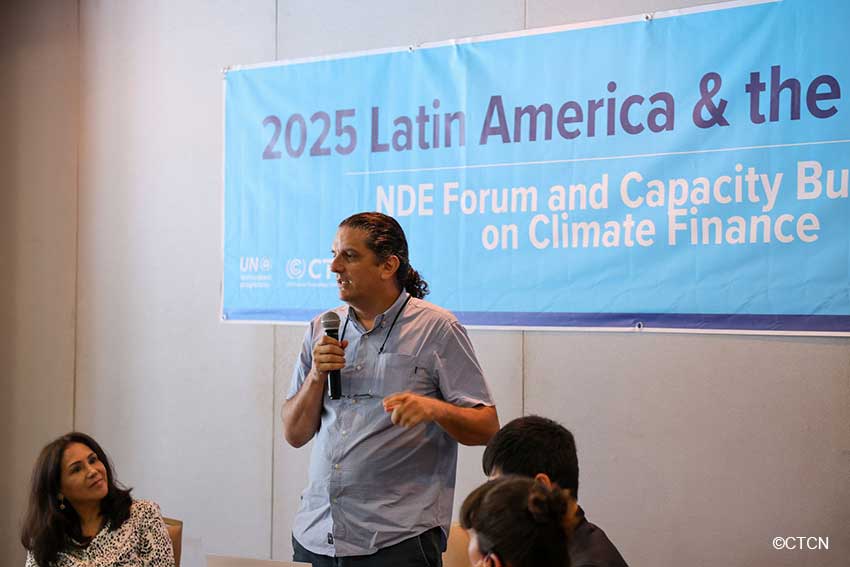
Among the shared advancements were:
• An updated map of mangrove coverage in the territory.
• The identification of ecosystem degradation drivers.
• An analysis of livelihoods linked to mangroves, including artisanal fishing and piangua (clam) harvesting.
• Associated ecosystem services and community responses to climate threats.
• Initial proposals for restoration strategies in prioritized sites.
“The project aims to strengthen the technical capacities of the Cuerval Community Council in ecological mangrove restoration and community monitoring. By maintaining mangrove ecosystem services, we help support local livelihoods, reduce climate change impacts, and achieve mitigation benefits through avoided emissions,” said Danilo Torres, CATIE researcher.
“Cuerval Sostenible” also promotes technical and social innovation, combining remote sensing technologies with participatory training processes and local data generation. The initiative further supports the strengthening of local value chains, such as piangua harvesting and artisanal fishing, both essential to the food security of coastal communities.
This CATIE experience stands as a prime example of how scientific knowledge, technology, and local wisdom can be integrated to tackle the challenges of climate change and foster sustainable management of coastal ecosystems in Latin America and the Caribbean.
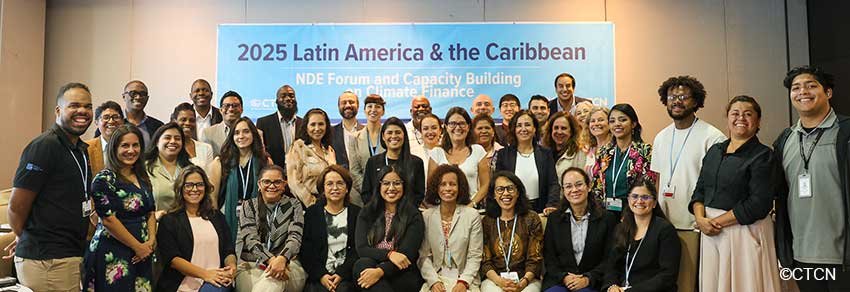
More information:
Danilo Torres
Coordinator, Cuerval Sostenible Project – CTCN
Climate Action Unit – CATIE
danilo.torres@catie.ac.cr
Written by:
Ileana Avalos
Coordinator, PARES Project
Climate Action Unit – CATIE
ileana.avalos@catie.ac.cr

